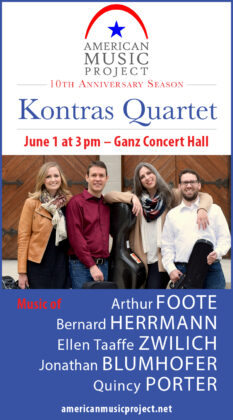Clyne’s powerful premiere given first-class advocacy by Muti, CSO

Riccardo Muti and the Chicago Symphony Orchestra depart for a West Coast tour next week but before they do, the team is premiering a pair of new works by their two young composers in residence.
Last week it was Mason Bates with his symphony, Alternative Energy. Thursday night at Symphony Center it was the turn of Anna Clyne with Muti and the CSO presenting the world premiere of her Night Ferry.
This 20-minute single movement for large orchestra has a duo inspiration. Coleridge’s The Rime of the Ancient Mariner was one source and the other catalyst came from the CSO’s music director. Muti suggested that Clyne research Schubert and the composer did so—not his music but Schubert’s emotional instability as well as that of other, similarly afflicted writers and poets. The title is taken from Seamus Heaney’s Elegy for Robert Lowell.
The sense of conflict between creative inspiration and mental instability is vividly painted in the opening pages. Night Ferry begins with a crash and roiling, furioso figures in the violas, which passes to the other strings. A turbulent agitated quality predominates over undulating watery bass figures The sense of psychic dislocation is reflected in the aggressive brass writing with stopped horns set against the scurrying strings, and rolling notes from three bass drums spread across the stage.
The driving music eases briefly for a plaintive piccolo solo, echoed by the flutes and other winds. But soon the desperate agitation returns with several emphatic chords for full orchestra, and a unearthly sea-creature like wail from the contrabassoon. An impressionistic section provides some respite with the cooling balm of high winds against harp and piano, though the unease lurks in the background elsewhere in the orchestra.
A malevolent two-note motif in the basses and cellos enters, moving to the other sections of the orchestra. Near the end, the music slows and the wild energy appears spent with a peaceful passage for winds providing some degree of solace. Night Ferry closes quietly with a sense of hard-won peacefulness in a glowing, benedictory coda.
Night Ferry is a powerful, compelling work displaying the freshness and individuality of the greatly gifted Clyne, as has been demonstrated in her works heard at the CSO’s MusicNOW concerts over the past two years. She shows great confidence in her writing for large forces and, as always in her music, displays a quirky, individual handling of thematic development.
There are some debits. The fortissimo tutti blasts are repeated too often, almost becoming a mannerism and the material and dynamics could sometimes use greater contrast and nuance.
But this is an undeniably impressive debut for the 31-year-old composer, especially considering this is only her second work for orchestra. Muti and the CSO served up a galvanic, full-metal performance and Clyne’s work should win the orchestra—and the composer—a new and receptive audience on tour.
Music of Schubert framed the Clyne premiere. One would expect Muti and the orchestra to excel in Schubert’s Symphony No. 9 and so they did. The expansive 50-minute canvas of the mighty C-major is chockablock with a rich vein of characteristic Schubert melody, and was scaled in supremely convincing fashion Thursday night. Muti directed a reading of enormous lift, with meticulous balancing that allowed all of the score’s myriad glories to shine.
Eugene Izotov’s superb oboe solo launched the Andante with Muti eliciting playing that ideally blended radiant warmth and rhythmic thrust. The moment when the amiable progress is abruptly halted by a jarring crash and burn—much like those repeated bass tremolos in Schubert’s B-flat piano sonata—was given full and unsettling impact. A dynamic and vigorous Scherzo and thrilling finale sealed the performance, the latter propulsive and incisive without sacrificing an essential Schubertian graciousness.
The concert began with the Entr’acte No. 3 from Schubert’s incidental music from Rosamunde. Muti’s tempo felt rather leisurely but was supremely well sustained and with playing as glorious as this, who can complain? The opening page was like easing into a warm bath with silken violins and the relaxed pastoral expression of Stephen Williamson’s clarinet solo highlighted a glowing performance.
This is not a program to miss—as much for the CSO debut of Anna Clyne’s music as the vital and eloquent Schubert performances.
The program will be repeated 1:30 p.m. Friday and 8 p.m. Saturday. cso.org; 312-294-300
Posted in Performances





Posted Feb 11, 2012 at 10:52 pm by Bob Eisenberg
What did you all think of the trombones sounding Viennese
and (at least) Friedman playing what looked like a European instrument?
Posted Feb 12, 2012 at 8:39 am by Lawrence A. Johnson
I think the entire orchestra sounds much more European in terms of blending and tonal refinement. In thirty years of attending CSO concerts, I don’t think the strings have ever sounded more beautiful than they do right now.